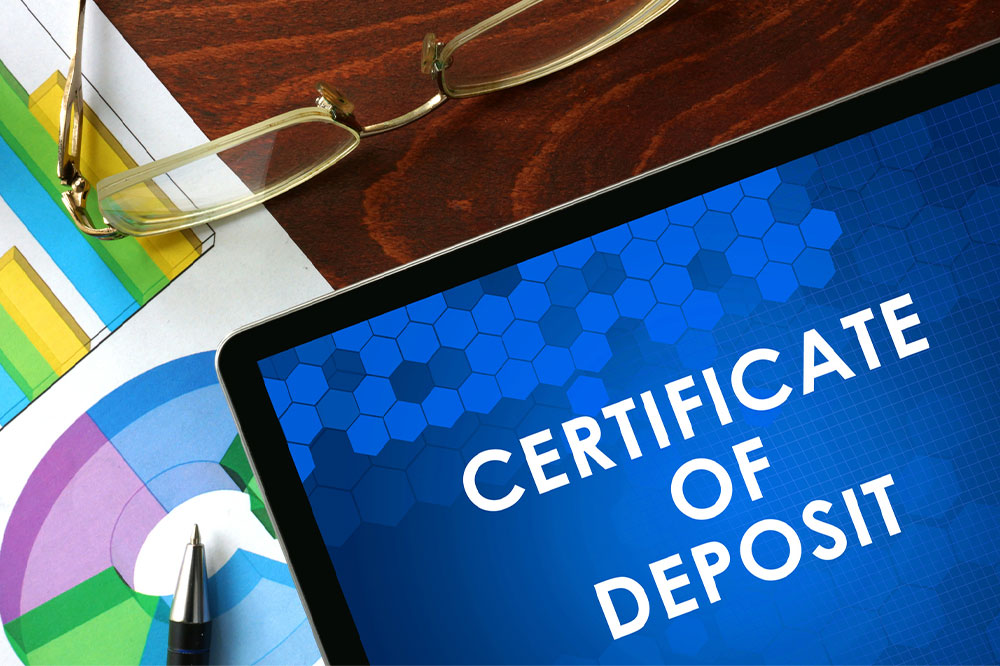A certificate of deposit (CD) is a savings instrument that allows investors to earn interest on their deposits for a fixed period of time. This is a low-risk option that generally offers a higher rate of return than savings accounts. However, the deposited amount must remain untouched for the entirety of the term period. To make the most of these investment options, here are a few mistakes one must avoid while opening a CD:
1. Skipping research
Rates for CDs vary significantly between banks and financial institutions. One of the biggest mistakes one can make here is allocating all of their money to one CD before shopping around for better interest rates or terms. Research can help one learn how to maximize their investment. For instance, considering credit unions might be a suitable option, as they tend to offer higher interest rates on CDs in comparison to traditional banks. Additionally, one should know about the different types of CDs, such as:
Standard CD: This comes with a fixed interest rate, early withdrawal penalties, and a single initial deposit. The terms for standard CDs can range from one month to 10 years.
No-penalty CD: As the name suggests, this type allows one to withdraw funds one or more times without any penalties. The type tends to have lower interest rates than regular CDs and may have a term period of one to twelve months.
Bump-up CD: Bump-up CDs give one an opportunity to ask the bank to increase the rate of returns if the interest rate increases during the term period.
Step-up CD: This option allows one to take advantage of increasing interest rates. Here, the interest rate is automatically raised by a predetermined amount without one having to request a rate increase.
Brokered CDs: These CDs are offered by brokerage firms instead of banks and credit unions. They may come with term periods of up to 30 years.
Callable CDs: These typically earn higher interest rates than conventional CDs but have an associated risk factor—the bank may cut short or “call” the CD if rates start dropping.
Add-on CDs: These allow one to make one or more deposits after the initial deposit, helping them grow their earnings continually.
One must always take the time to understand the terms of each CD, compare rates, and invest carefully to ensure that the investment decision aligns with their financial goals.
2. Ignoring CD terms and maturity dates
Another common mistake is ignoring the terms and maturity dates of the CD. The term can range from a few months to a few years, so the duration can significantly impact the liquidity of funds for CD account holders.
3. Allowing automatic renewals
At some banks and financial institutions, an initial CD may roll over into a new one with the same terms and conditions after a grace period of 7 to 10 days if no clear instructions are provided. This could reduce the earnings one gets from their savings. If one is keen on continuing to invest in CDs, they must check the interest rates and terms the bank offers upon maturity. Then, one can ask for better rates or shop around for better offers to maximize savings.
4. Overlooking penalties
CDs may also have certain penalties for early withdrawals. For instance, on a one-year CD, banks may charge up to 90 days’ worth of interest as an early withdrawal fee to protect themselves from any losses. The fees may differ by institution, term, and principal amount. So, before investing in a CD, it is important to carefully consider these penalties and ensure they do not interfere with financial goals.
5. Not diversifying
CDs are low-risk and low-return investments, which can limit one’s earning potential. These instruments may be a good option for achieving short-term financial goals, such as making down payments on big purchases. However, to get the most out of long-term investments, it may be advisable to diversify investments via stocks and funds and aim for higher returns. Some experts recommend a diversified portfolio that includes CDs, brokerage accounts, as well as retirement accounts, such as a 401(k), to ensure liquidity and allow money to grow exponentially over time.
6. Delaying high-interest debt pay-off
Another common mistake to avoid making is opening a CD when one has high-interest debt in the form of payday loans, private student loans, or credit cards. It is advisable to settle these loans before parking money in savings tools such as CDs or investing in the stock market. For those with sufficient earnings, paying off debts along with saving and investing in a CD may work.
7. Opening a fee-based account
Certain banks and credit unions may require one to open a checking account with their institution before depositing money into a CD. This can be a problem if there are any fees associated with the checking account. As the earnings on CDs tend to be low, these fees can significantly impact investment plans. If a bank requires one to open a fee-based checking account, one must carefully consider all costs involved.
8. Opening a CD when rates are rising
One must avoid opting for long-term CDs when interest rates are rising, which could reduce earnings. Instead of locking in a substantial sum in a single CD, one must consider a CD ladder—the practice of splitting up investment between CDs with varying terms so that they mature at regular intervals. This can also help one get higher rates, improved liquidity, and a diversified portfolio.

















